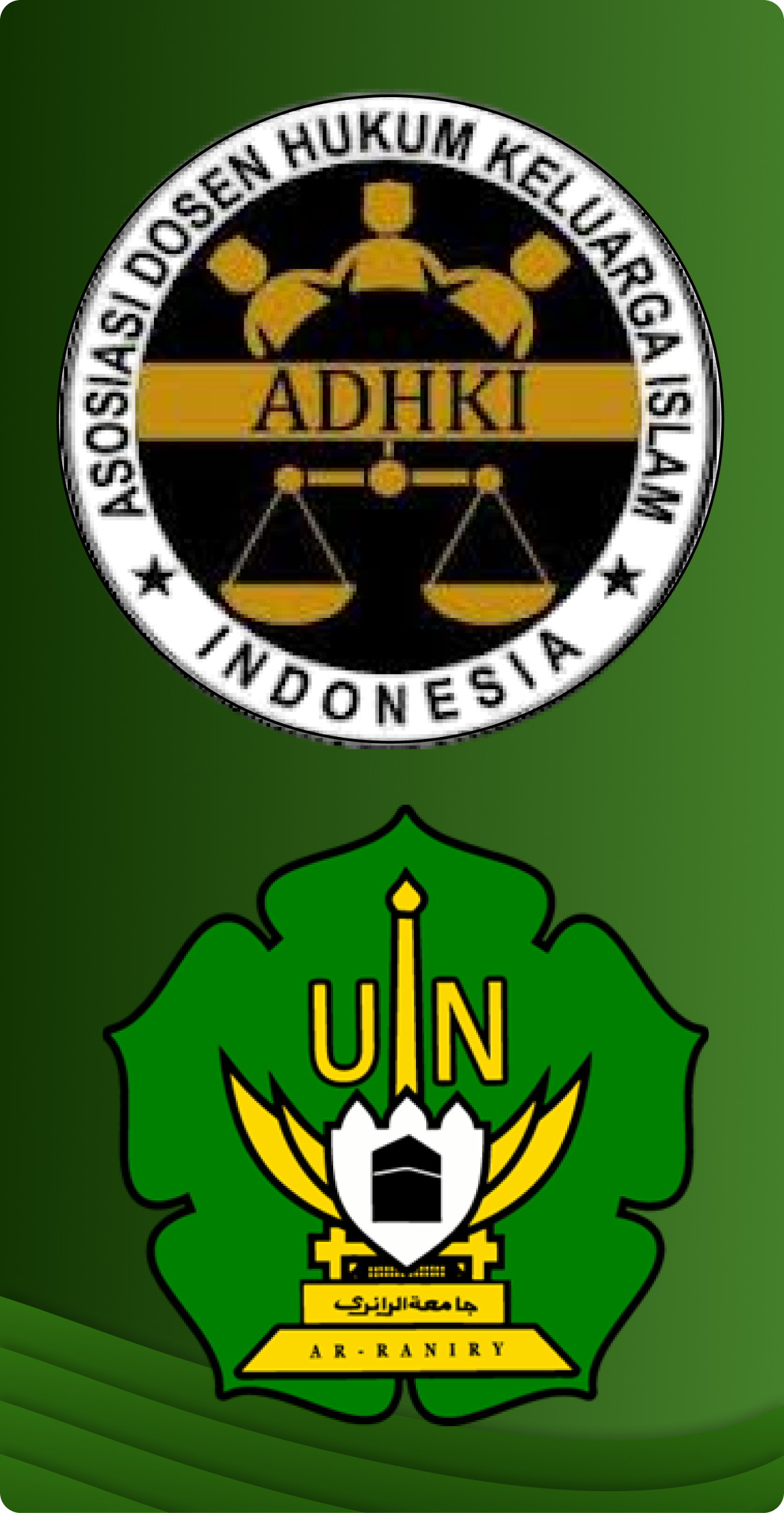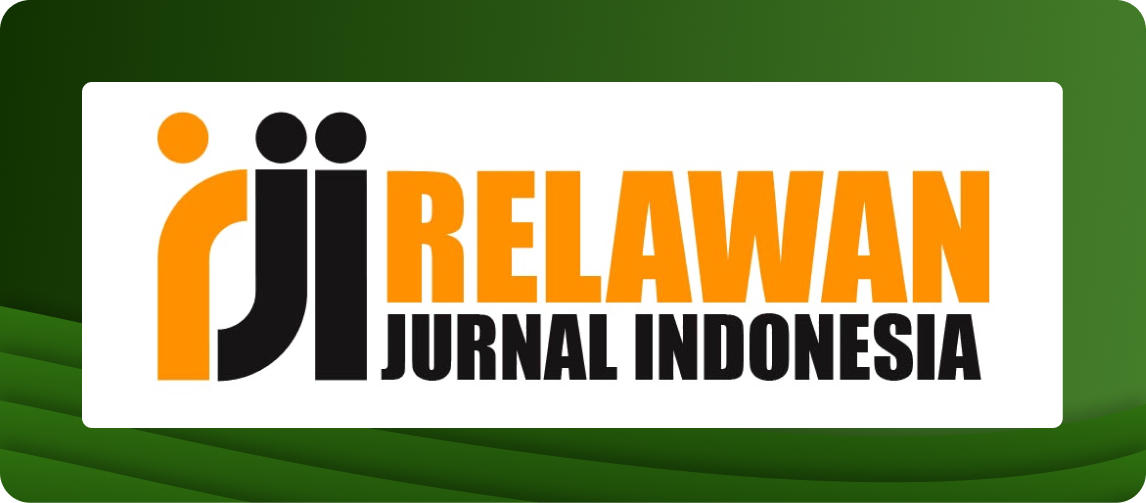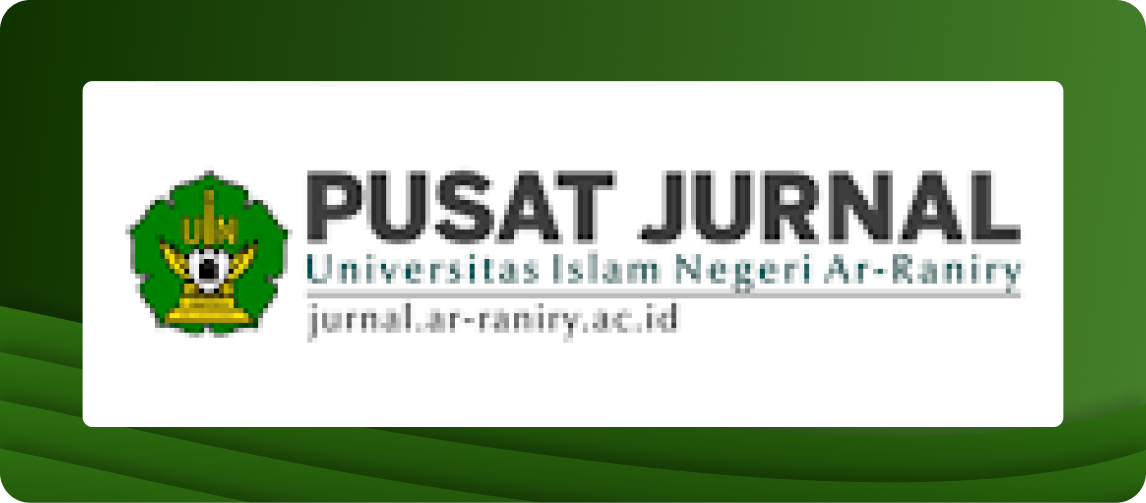The Social Construction and Symbolic Value of the Uang Basuh Kaki in the Wedding Tradition of the Koto Balingka Community
A Maqāṣid al-Sharia Perspective on the Protection of Wealth and Family
DOI:
https://doi.org/10.22373/ujhk.v8i2.31647Keywords:
Uang Basuh Kaki , Maqāṣid al-Sharia, Wedding TraditionsAbstract
This study examines the social construction and values associated with the Uang Basuh Kaki tradition in the wedding ceremonies of the Koto Balingka community in Pasaman Barat Regency, West Sumatera, Indonesia. Uang Basuh Kaki is a symbolic element in traditional marriage customs that represents respect and appreciation toward the bride’s family. This tradition is considered essential in maintaining social and familial harmony. Using the Maqāṣid al-Sharia approach, this research examines the aspects of wealth (ḥifẓ al-mal) and family (ḥifẓ al-nasl) within this tradition. Maqāṣid al-Sharia, as a theoretical framework, helps in understanding how the Uang Basuh Kaki tradition functions not only as a cultural practice but also aligns with Islamic objectives in preserving family welfare, social cohesion, and economic justice within the community. This study employs a qualitative methodology, incorporating in-depth interviews and participatory observations within the local society. The findings reveal that the Uang Basuh Kaki tradition holds complex meanings, both in terms of customary and Islamic perspectives, serving as a social mechanism to maintain economic balance and strengthen familial bonds within the community. This study highlights the importance of integrating local cultural understanding with Islamic values, as well as its broader implications for social and economic life within society
References
Journals and Books
Abubakar, Al Yasa’. Metode Istislahiah: Pemanfaatan Ilmu Pengetahuan Dalam Ushul Fiqh. Banda Aceh: Bandar Publishing dan Pascasarjana IAIN Ar-Raniry Banda Aceh, 2012.
Al-Qaffal, Muhammad bin Ali Al-Shashi. Mahasin Al Syariah Fi Furu’ Al Syafiiyah : Kitab Fi Maqashid Al Syari’ah. Lebanon: Dar Al-Kutub Al Ilmiyah, 2007.
Al-Syathibi. Al-Muwafaqat Fi Ushul Al-Ahkam. I. Beirut: Dar Al-Fikr, n.d.
Auda, Jasser. Maqasid Al-Shari’ah as Philosophy of Islamic Law. London: International Institute of Islamic Thought, 2022.
Auni, Luthfi, Abdul Manan, and Al Yasa’ Abubakar. “Factors Changing the Gayo Ethnic’s Traditional Marriage Procession in Lut Tawar Sub-District of Takengon, Central Aceh, Indonesia.” Samarah: Jurnal Hukum Keluarga Dan Hukum Islam 6, no. 2 (2022).
Aziz, Farhat, and Muhammad Yousuf. “The Role of Family in Social Harmony and Sustainable Development: A Study in Islamic Perspective.” Al Basirah 11, no. 1 (2022).
Busyro, Nunu Burhanuddin, Muassomah, Putri Ananda Saka, and Moh Ali Wafa. “The Reinforcement of the ‘Dowry for Groom’ Tradition in Customary Marriages of West Sumatra’s Pariaman Society.” Samarah: Jurnal Hukum Keluarga Dan Hukum Islam 7, no. 1 (2023).
Campos, Cintia Isabel de, Cira Souza Pitombo, Patricia Delhomme, and José Alberto Quintanilha. “Comparative Analysis of Data Reduction Techniques for Questionnaire Validation Using Self-Reported Driver Behaviors.” Journal of Safety Research 73 (2020).
Chambers, Deborah, and Pablo Gracia. A Sociology of Family Life: Change and Diversity in Intimate Relations. Cambridge: Polity Press, 2021.
Creswell, John W. Research Design: Qualitative, Quantitative, and Mixed Methods Approaches. Los Angeles: SAGE Publications, 2014.
Djawas, Mursyid, Ridhwan Ridhwan, Wardana Said, and Hedhri Nadhiran. “The Integration Between Syara’and Ade’in Marriage Tradition Bugis Bone, South Sulawesi.” AL-IHKAM: Jurnal Hukum & Pranata Sosial 18, no. 2 (2023).
Djawas, Mursyid, Dedy Sumardi, Ratna Yusdiana, Atika Nabila, and Cut Najwa Safa Yumna. “Restitution to Victims of Rape Crimes: Examination of Judicial Decision Number 06/JN/2019/MS.Lsm.” Legitimasi: Jurnal Hukum Pidana Dan Politik Hukum 13, no. 2 (2024).
Fakhyadi, Defel, and Muhammad Adib Samsudin. “Islamic Law Meets Minangkabau Customs: Navigating Forbidden Marriages in Tanah Datar.” El-Maslahah 14, no. 1 (2024).
Fisol, Wan Nazjmi Mohamed, Marina Abu Bakar, and Akli Ahmad. “Waqf Property Management Through the Maqasid Al-Shariah Approach.” Journal of Contemporary Issues in Business and Government 27, no. 3 (2021).
Gebremariam, Kebadu Mekonnen. “Kinship, Justice, and Inheritance: The Case of ‘Rest’ in Ethiopia.” Law and Philosophy 42, no. 1 (2023).
Guterres, Vicente Manuel Luis, Anak Agung Istri Ngurah Marhaeni, Made Heny Urmila Dewi, and Made Dwi Setyadhi Mustika. “The Tradition Of Dowry And Gender Equality Issues: A Literature Review.” Journal of World Science 3, no. 9 (2024).
Hamzani, Achmad Irwan, Fajar Dian Aryani, and Nur Rohim Yunus. “Non-Procedural Dispute Resolution: Study of the Restorative Justice Approach Tradition in Indonesian Society.” International Journal of Offender Therapy and Comparative Criminology 69, no. 4 (2023).
Harisudin, M Noor, and Muhammad Choriri. “On The Legal Sanction Against Marriage Registration Violation in Southeast Asia Countries: A Jasser Auda’s Maqasid Al-Shariah Perspective.” Samarah: Jurnal Hukum Keluarga Dan Hukum Islam 5, no. 1 (2021).
Horii, Hoko. “Legal Reasoning for Legitimation of Child Marriage in West Java: Accommodation of Local Norms at Islamic Courts and the Paradox of Child Protection.” Journal of Human Rights Practice 12, no. 3 (2020).
Ishtiaq, Muhammad. “Creswell, J. W. (2014). Research Design: Qualitative, Quantitative and Mixed Methods Approaches (4th Ed.). Thousand Oaks, CA: Sage.” English Language Teaching 12, no. 5 (2019).
Islami, Nur, and Muhammad Hidayat. “Makna Tradisi Mombasuoh Kaki Pada Masyarakat Minangkabau Dalam Upacara Perkawinan.” Culture & Society: Journal of Anthropological Research 4, no. 2 (2022).
Jafar, Wahyu Abdul, Musda Asmara, Mu’adil Faizin, Helena Octavianne, and Budi Kisworo. “Philosophical Foundations and Human Rights in the Bajapuik Tradition: Bridging Local Wisdom and Islamic Law in Minangkabau Marriage Practices.” De Jure: Jurnal Hukum Dan Syar’iah 16, no. 1 (2024).
Kamaruddin, Iswandi, Andi Yaqub, Layyin Mahfiana, and Muh Akbar. “Justice, Mediation, and Kalosara Custom of the Tolaki Community in Southeast Sulawesi from the Perspective of Islamic Law.” Samarah 7, no. 2 (2023).
Khairani, Leylia. “In the Light of Cultural Studies, the Contest of Javanese Deli Cultural Identity vs. Local Culture.” In Proceedings of the International Conference on Communication, Policy and Social Science (InCCluSi 2022). Medan: Atlantis Press, 2022.
Khomariah, Nurul, and Melia Afdayeni. “Marsialapari : Tradisi Masyarakat Mandailing Di Kampung Air Putih Nagari Kinali Kecamatan Kinali Kabupaten Pasaman Barat (1972-2021).” Thullab 3, no. 1 (2023).
Kurniati. “A Review of The Mashlahah of Uang Panai’ in Decision Making: The Role of Financial Behavior, Social Strata, Education and Religiosity.” Bilancia: Jurnal Studi Ilmu Syariah Dan Hukum 18, no. 1 (2024).
Kurniawan, Edi. “Early Marriage, Human Rights, and the Living Fiqh: A Maqasid Al-Shariʻa Review.” Al-Risalah: Forum Kajian Hukum Dan Sosial Kemasyarakatan 20, no. 1 (2020).
Layder, Derek. “Social Sciences, Social Reality and The False Division Between Theory and Method: Some Implications for Social Research.” SN Social Sciences 1, no. 47 (2021).
Miles, Mattew B., and A. Michael Huberman. Qualitative Data Analysis. UK: Sage Publication, 1994.
Mohadi, Mawloud. “Normative Islamic Conceptualizations of Families and Kinship Through Maqasid Perspectives: A Comprehensive Literature Study.” Malaysian Journal of Syariah and Law 11, no. 2 (2023).
Murtadlo, Muhammad Ali. “Islamic Family Law Reform in Indonesia.” Islamic Contemporary Issues in Social Sciences, 2020.
Nasution, Rijal Kahfi, and Mislan. “Tradisi Pernikahan Di Desa Rumbio Dalam Adat Mandailing.” Malay Studies: History, Culture and Civilization 2, no. 1 (2023).
Nawawi, Imam. Metode Penelitian Kualitatif, Teori Dan Aplikasi Interdisipliner Ilmu Sosial, Ekonomi Islam, Agama Dan Managemen. Jakarta: Dwi Pustaka Jaya, 2012.
Ni’ami, Mohammad Fauzan, and Bustamin. “Maqāṣid Al-Syarī’ah Dalam Tinjauan Pemikiran Ibnu ‘Āsyūr Dan Jasser Auda.” Juris: Jurnal Ilmiah Syari’ah 20, no. 1 (2021).
Nofiardi. “Adat Rantau as a Solution for Multi-Ethnic Marriage in Pasaman, West Sumatera.” Al-Risalah: Farum Kajian Hukum Dan Sosial Kemasyarakatan 20, no. 2 (2020).
Rahman, Mohammad Musyfiqur. “Islamization: A Sociological Approach.” Indonesian Journal of Islamization Studies (INJAS) 1, no. 2 (2024).
Risa, Yulia, and Emizal Amri. “Fungsi Tuor Bagi Orang Mandailing.” Culture & Society: Journal of Anthropological Research 3, no. 2 (2021).
Saiin, Asrizal, M. Hasbi Umar, Badarussyamsi, Moh. Zaidi Hajazi, and Maulana Yusuf. “The Domination Of Islamic Law In Customary Matrimonial Ceremonies: Islamic Values within the Malay Marriage Tradition in Kepulauan Riau.” Ahwal 16, no. 2 (2023).
Salsabila, Vania, Azwar Ananda, Nurman S, and Ideal Putra. “Transformasi Tradisi Etnis Mandailing Di Nagari Rabi Jonggor, Kabupaten Pasaman Barat.” Journal of Education, Cultural and Politics 4, no. 1 (2024).
Sebastian, Aleena. “Matrilineal Practices Among Muslims: An Ethnographic Study of The Minangkabau of West Sumatra.” Ethnography 0, no. 0 (2022).
Siregar, Fatahuddin Aziz, Ibrahim Siregar, and Suheri Sahputra Rangkuti. “Contestation of Customary and Islamic Law: Mangupa and Tuor in Horja Ritual at Tapanuli Muslim Community Wedding.” Asy-Syir’ah: Jurnal Ilmu Syari’ah Dan Hukum 57, no. 2 (2023).
Soekanto, Soerjono. Sosiologi: Suatu Pengantar. Jakarta: Raja Grafindo Persada, 2010.
Sumardi, Dedy, Ratno Lukito, and Moch Nur Ichwan. “Legal Pluralism within the Space of Sharia: Interlegality of Criminal Law Traditions in Aceh, Indonesia.” Samarah 5, no. 1 (2021).
Syaikhu, Syaikhu, Ibnu Elmi A.S. Pelu, Muhammad Hafiz Badarulzaman, Reza Noor Ihsan, and Rafik Patrajaya. “Community, Family and Animal Conservation Sustainability in the Perspective of Normative Law and Maqasid Sharia.” El-USRAH: Jurnal Hukum Keluarga 7, no. 2 (2024).
Warman, Arifki Budia, Zulkifli, Yustiloviani, Wardatun Nabilah, and Riska Fauziah Hayati. “Strengthening Family Resilience Through Local Wisdom: Pulang Ka Bako Type of Marriage in Minangkabau.” Al-Istinbath: Jurnal Hukum Islam 8, no. 1 (2023).
Wati, Felia. “Tradisi Maisi Sasuduik Dalam Perkawinan Masyarakat Minangkabau: Studi Interaksi Adat Dan Hukum Islam.” As-Syar’i: Jurnal Bimbingan & Konseling Keluarga 6, no. 1 (2023).
Zainuddin, Muslim, Mukhsin Nyak Umar, Dedy Sumardi, Mansari Mansari, and Zakki Fuad Khalil. “Protection of Women and Children in the Perspective of Legal Pluralism: A Study in Aceh and West Nusa Tenggara.” Samarah: Jurnal Hukum Keluarga Dan Hukum Islam Hukum Islam 8, no. 3 (2024).
Interviews
Interview with Ahmad Sanusi, Traditional Leader, March 12, 2024
Interview with Safaruddin, Ninik Mamak, Koto Balingka, May 23, 2024
Interview with Afrizal, Traditional Figure, Koto Balingka, April 12, 2024
Interview with Salman, Community Leader and Religious Leader, Balingka District, June 11, 2024.
Interview with Ikhwanushofa, Community Leader, March 11, 2024.
Interview with Mardalin, Community Leader, June 6, 2024.
Interview with Syafri, Muballigh, Koto Balingka, West Pasaman Regency, July 2024.
Downloads
Published
Versions
- 2025-11-06 (2)
- 2025-11-05 (1)
Issue
Section
License
Copyright (c) 2025 Kholidah Kholidah, Sobhan Sobhan, Azka Ummah, Ahmad Iffan

This work is licensed under a Creative Commons Attribution-ShareAlike 4.0 International License.
Authors who publish in El-Usrah: Jurnal Hukum Keluarga agree to the following terms:
Authors retain copyright and grant the journal right of first publication with the work simultaneously licensed Attribution-ShareAlike 4.0 International (CC BY-SA 4.0) that allows others to share the work with an acknowledgment of the work's authorship and initial publication in this journal.
Authors are able to enter into separate, additional contractual arrangements for the non-exclusive distribution of the journal's published version of the work (e.g., post it to an institutional repository or publish it in a book), with an acknowledgment of its initial publication in this journal.
Authors are permitted and encouraged to post their work online (e.g., in institutional repositories or on their website) prior to and during the submission process, as it can lead to productive exchanges, as well as earlier and greater citation of published work. (See The Effect of Open Acces)

















